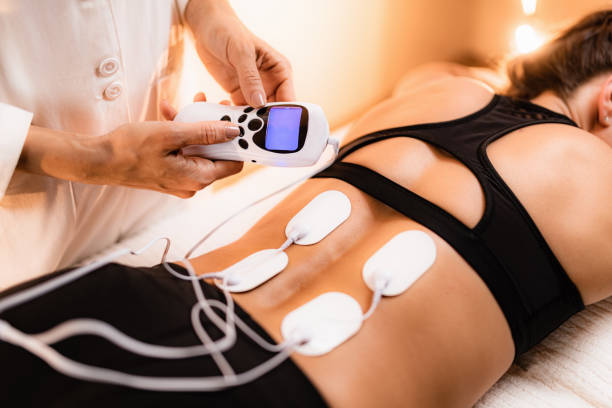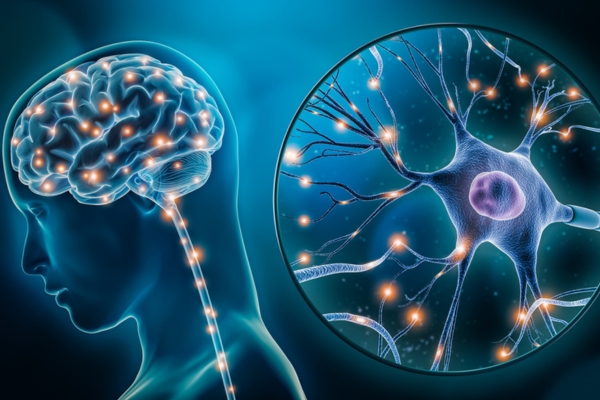At the Center for Regenerative Therapy & Pain Management, we help patients find real relief from chronic, treatment-resistant pain with spinal cord stimulation (SCS). This advanced, minimally invasive therapy targets nerve pain at the source, helping patients regain comfort, function, and control over their lives.
Led by Dr. Shane Huch, our team specializes in building personalized pain management plans using the latest proven technologies—including spinal cord stimulators—for lasting, meaningful results.
A spinal cord stimulator is a small, implantable device that delivers mild electrical impulses to the spinal cord. These impulses interfere with pain signals before they reach the brain, reducing or eliminating the sensation of pain.
The process typically involves a short trial phase where a temporary device is placed to test how well it controls your pain. If successful, a permanent stimulator can be implanted under the skin during a minimally invasive procedure.


Spinal cord stimulators offer significant relief for patients who have not responded to other treatments. Many patients are able to reduce or even eliminate their need for pain medications after implantation.
Reduces chronic nerve pain at the source
Helps avoid further surgery or long-term medication use
Minimally invasive, outpatient-based procedure
Offers a trial phase to ensure effectiveness before permanent placement
Improves quality of life, daily activity, and emotional well-being
Persistent pain after back or spine surgery can often be relieved through spinal cord stimulation when other options have failed.
Patients with severe nerve pain from CRPS often experience major improvement with spinal cord stimulation.
SCS can significantly ease lower back pain and radiating leg pain when caused by nerve damage or irritation.
SCS can relieve nerve pain caused by diabetes, infections, or other conditions affecting the peripheral nervous system.
Spinal cord stimulators are used when nerve injuries after surgery cause chronic, debilitating pain that medications can't control.
Patients with advanced spinal narrowing and nerve compression pain may find relief with spinal cord stimulation when surgery isn’t an option.
At the Center for Regenerative Therapy & Pain Management, we offer spinal cord stimulation as part of a personalized treatment approach for patients suffering from long-term pain. If you’ve tried medications, injections, or surgery without lasting results, a spinal cord stimulator could be the next step toward reclaiming your life.
Let’s create a treatment plan that gives you real, lasting relief.
Spinal cord stimulators send mild electrical impulses to the spinal cord to block pain signals before they reach the brain. Instead of feeling pain, many patients feel a gentle tingling or significant relief in the affected area.
Yes, spinal cord stimulators are highly effective for many patients with chronic nerve-related pain. Studies show that a majority of qualified candidates experience at least 50% or greater pain reduction after implantation.
The trial procedure is minimally invasive and usually very well tolerated. You may feel slight pressure during placement, but significant pain during the trial is rare.
The implanted device typically lasts 5 to 10 years or more, depending on the model and battery type. Rechargeable systems often last longer than non-rechargeable ones.
It’s rare, but slight movement of the battery can happen, especially right after implantation. Following your doctor’s post-procedure instructions greatly reduces this risk.
Yes, for some patients. If your sacroiliac (SI) joint pain involves nerve-related inflammation, spinal cord stimulation can be a helpful and effective option.
Patients with chronic nerve pain who have not responded to medications, injections, or surgery often make excellent candidates. A successful trial period is typically required before proceeding with permanent implantation.
Yes, spinal cord stimulation is a safe, FDA-approved treatment with a long track record of success. Risks are low, and serious complications are very rare when performed by experienced specialists.

We provide advanced, personalized pain management care for patients across New Jersey, led by board-certified specialist Dr. Shane Huch.
Center for Regenerative Therapy and Pain Management © All Rights Reserved | A Division of Toms River Anesthesia Associates